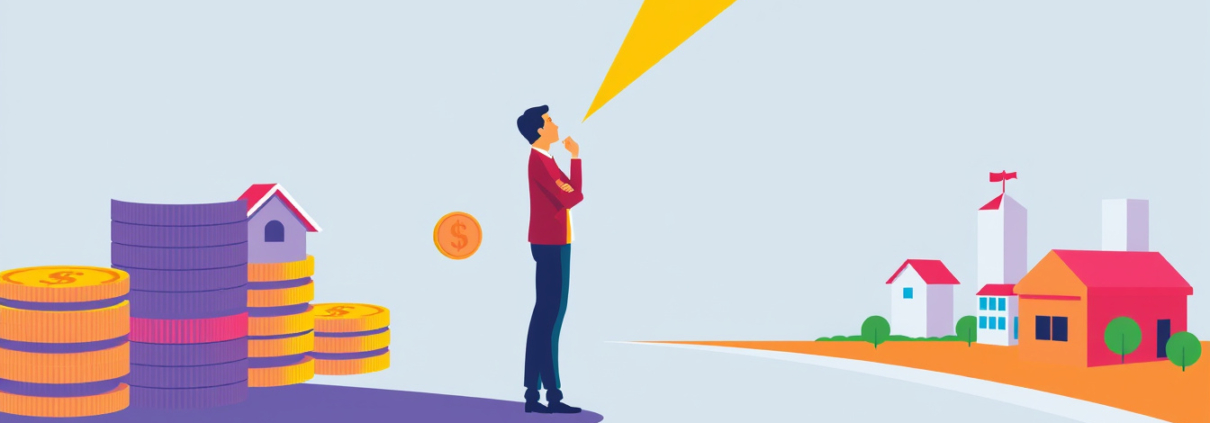💡 How Changing My Perspective on Money Led to Real Estate Success
Many people delay investing in real estate because they feel they lack money to start. This is a common error that blocks many. Shifting your view on money—focusing on how debt and cash flow work—can bring many new paths in real estate. Here is how that shift builds lasting gains.
Starting Without Much Money
Many new investors say, "I do not have money." Even those who become rich did not start with large funds. The secret lies not in having cash at once but in knowing how to use funds from others and picking the right plan. Two friends began with little cash and no stable jobs. They studied the market, worked hard, and used smart money methods to grow their wealth slowly.
The Power of Cash Flow Over Property Flipping
Some try quick gains by buying houses cheap and selling them fast. This race can work for a few, but it is risky and depends on the market’s mood. Focusing on cash flow—that is, the steady income from rented homes—keeps income stable over time.
- Each home is chosen for its power to pay bills each month.
- Even if the home’s price slows or drops, the cash flow keeps running.
- This habit helps to keep loss at bay.
Staying close to cash flow gives investors a way to handle market ups and downs.
Learning to Use Debt Wisely
One odd rule is to not save every penny but to learn how debt can work for you. This idea goes against the usual tip to save and pay off debt.
- When the US dollar moved away from gold in the 1970s, money began to stand on debt.
- Smart investors use debt as a tool to buy assets without needing big cash pots.
- Banks quickly give money to those who show clear money sense and a strong plan.
Used well, debt becomes a tool to build more wealth rather than a heavy load.
Taking Action Through Education and Persistence
The start came with a $385, three-day real estate class. But class lessons alone did not drive growth. Real change came when the knowledge was put to work immediately:
- They used the lesson as soon as possible.
- They checked hundreds of homes to truly understand the market.
- They met many refusals from agents who cared only about fees.
- They kept working with a clear goal to buy houses that earn steady cash.
For example, an $18,000 condo in a wealthy area became the first home bought without using personal money. Even with a small cash gain each month, it proved that investing in real estate without your own funds is possible.
Key Takeaways for Aspiring Real Estate Investors
- Begin with what you have—great wealth is not a must.
- Focus on homes that produce ongoing income.
- Learn to use debt as a tool, not just something to avoid.
- Get educated and put that learning into quick use.
- Keep working hard—success grows by steady effort and learning.
- Ignore voices that say, "You cannot do that here."
- Look out for smart ways to find funding, such as foreclosures or low-cost homes.
Conclusion
Changing your view on money—knowing that debt can be a useful tool and steady cash flow is key—can open real estate success. It is not about being rich. It is about knowing, thinking, and acting.
FAQs
Q1: Why is cash flow more important than a rise in property prices?
A1: Cash flow gives you a steady income even when markets change. It helps cover bills and holds profit steady.
Q2: How can I invest in real estate without much money?
A2: Study how to use other people’s funds through loans, partners, or clever funding, and aim for homes that bring in cash every month.
Q3: Is debt too risky? How should I work with it?
A3: Debt can be risky if used wrong. If you learn to use it well to buy homes that earn steady income, debt serves as a strong tool. Pick homes where the cash earned covers the cost of debt and bills.









